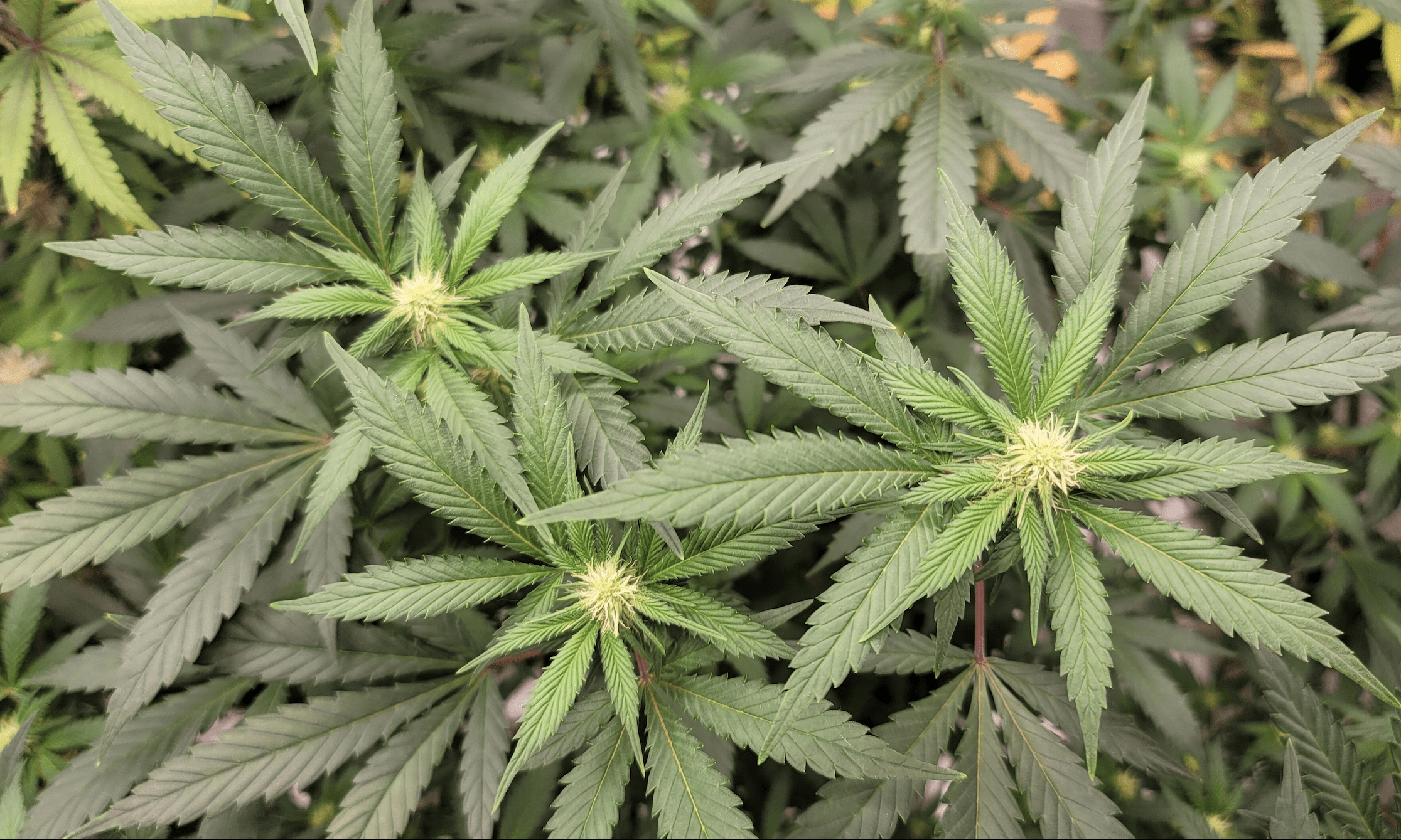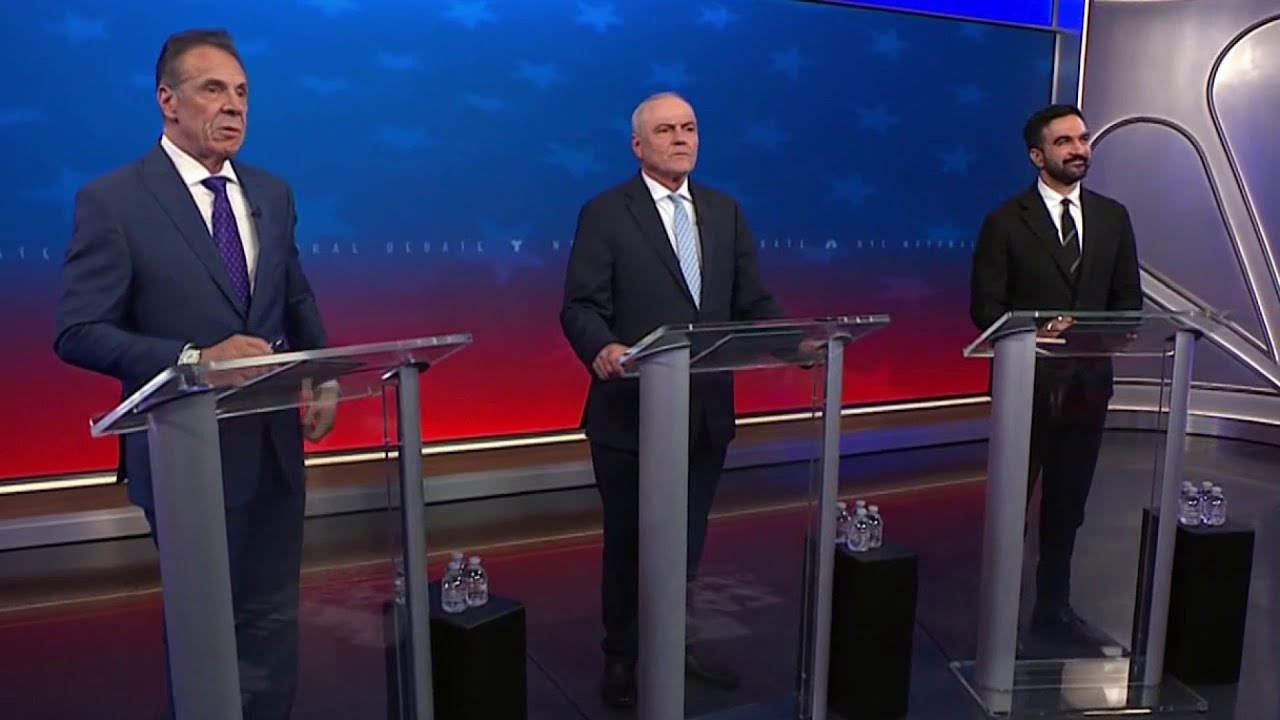Politics
NYC Mayoral Candidates Reveal Whether They’ve Purchased Marijuana From Licensed Shops During Contentious Debate

New York City’s three major mayoral candidates got something of a curveball question during an otherwise contentious debate on Thursday, with each of the contenders asked whether they’ve “ever purchased anything in a cannabis shop.”
Democratic mayoral hopeful Zohran Mamdani and Republican candidate Curtis Sliwa affirmed that they have bought marijuana at licensed shops.
Former Gov. Andrew Cuomo (D), who is running as an independent after losing the Democratic primary earlier this year, however, answered with a flat “no,” despite signing legalization into law in 2021 before resigning amid unrelated controversy later that year.
“I have purchased marijuana at a legal cannabis shop,” Mamdani said at the NBC 4 debate, laughing.
Sliwa, the GOP mayoral candidate, answered the cannabis question by stating that he “did use medical marijuana” after being “shot five times” in a 1992 incident and also to treat symptoms of Crohn’s disease
Neither Mamdani nor Sliwa responded to the part of the moderator’s question about what specific types of products they purchased.
Mamdani voted for legalization as a member of the state Assembly.
“I’m proud to be here today to debate the adult use of marijuana—also known as loud, Sour D, herb, Mary Jane, kush, green, pot, weed, zaza, a jazz cigarette and marijuana,” he said on the floor ahead of the vote. “In the course of this debate I’ve heard many of our colleagues from across the aisle discuss that smoking or ingesting marijuana is an indication of lawlessness and a deteriorating quality of life, makes one lazy and a burden to society, serves as a gateway drug.”
“And amidst this fiction and frankly coded language I’d also like to present a fact, which is that smoking or ingesting marijuana may also lead to you becoming an elected official,” he said. “I’m very excited to be voting for this bill today.”
Cuomo, for his part, described legalization as a “priority” leading up the passage of the adult-use bill, though there were disagreements along the way between the then-governor’s office and the legislature about what the regulatory framework should look like.
Some advocates took issue with provisions in Cuomo’s legalization plan related to equity and regulatory control, as well as a continued prohibition on home cultivation. The proposal also lacked license categories for delivery services and on-site consumption.
Of course, with marijuana already legal in New York, the brief responses to the question didn’t reveal much in the way of any future cannabis policy action any of the candidates might take if elected.
New York officials last month touted a marijuana milestone, with the state exceeding $2 billion in cannabis sales since the market launched. And $1 billion of those purchases have been made in 2025 alone.
—
Marijuana Moment is tracking hundreds of cannabis, psychedelics and drug policy bills in state legislatures and Congress this year. Patreon supporters pledging at least $25/month get access to our interactive maps, charts and hearing calendar so they don’t miss any developments.
![]()
Learn more about our marijuana bill tracker and become a supporter on Patreon to get access.
—
Meanwhile, given confusion within the marketplace about timelines for provisional licenses, the Cannabis Control Board (CCB) recently said it will be extending the renewal deadline for conditional adult-use until December 31, 2026.
“This extension provides licensees additional time to secure viable locations and move toward full licensure,” OCM said. “It will also apply to any provisional licenses issued between September 9, 2025, and December 30, 2025, ensuring clarity and consistency for all provisional license holders.”
Part of the uncertainty surrounding provisional licensees concerns a recently identified zoning issue impacting more than 100 cannabis businesses that are apparently located too close to public schools or places of worship than is allowed under current statute. Gov. Kathy Hochul (D) has said that she will be pushing the legislature to amend the state’s marijuana law to address the issue.
In July, meanwhile, New York officials announced the first round of grants under a $5 million program to help retail marijuana businesses owned by justice-involved people cover startup costs.
About three months after opening up applications for the Conditional Adult-Use Retail Dispensary (CAURD) Grant Program, the Office of Cannabis Management (OCM) and Empire State Development (ESD) announced in March that they awarded 52 licensed dispensaries up to $30,000 each in funds meant for startup and operational costs such as rent, renovations, inventory tracking and security systems.
To qualify for the program, applicants need to have been “justice involved”—in other words, impacted by a marijuana-related conviction—and have some experience running a profitable business.
OCM also recently launched a new online map that’s meant to help adults locate licensed marijuana retailers—one of their latest efforts to encourage consumers to buy their cannabis from the regulated market.
After a rocky rollout of the state’s legalization law opened the door to a proliferation of illicit marijuana shops, the governor and regulators have prioritized educating the public about the need to purchase their products from licensed dispensaries as a health and safety imperative.
The broader New York campaign has also involved digital ads and educational resources, including a guide on safe consumption practices, as well as graphics and videos featuring licensed cannabis business owners and messaging about the benefits of participating in the regulated market.
OCM also advises that “continued enforcement against the illicit market is critical to building a health regulated market,” pointing to what it describes as successful enforcement efforts in 2024. Last spring, for example, officials in New York City launched Operation Padlock, an enforcement initiative meant to shutter illegal storefronts. Within months, licensed shops that were open before the operation began saw sales climb 105 percent, according to an OCM survey.
Regulators are also moving forward with new proposed regulations around the state’s so-called “cannabis showcase” program, which allows licensed businesses to sell to consumers at pop-up, farmers market-like events.
As originally authorized, the showcase events were largely in response to the slow rollout of New York’s adult-use marijuana program, which faced multiple delays in implementation amid litigation and other matters.
Separately Hochul signed state budget legislation that did not include a controversial earlier provision that would have allowed police to use the smell of marijuana as probable cause that a driver is impaired and then force them to take a drug test.
Amendments made in the legislature removed the provision, which a coalition of 60 reform groups had argued in a letter to Hochul and top lawmakers would “repeat some of the worst harms of the War on Drugs” and allow law enforcement to “restart unconstitutional racial profiling of drivers.”
In April, New York cannabis regulators and labor officials announced the launch of a workforce training program aimed at “providing comprehensive safety education to workers” in the state’s legal marijuana industry.
Separately, OCM’s press secretary indicated the office is working on plans to expand permitting and licensing rules that could allow adults to buy and consume marijuana at movie theaters. Authorizing sales of cannabis products at theaters would set New York apart as it continues to build upon the state’s legalization law.
Earlier this year, a collective of businesses licensed under the CAURD program called on Hochul to forgive tens of millions of dollars in high-cost loans issued under a governor-created social equity loan fund.
A state lawmaker said in December that there’s a need to extend financial aid to CAURD license holders, many of whom are struggling under the high-cost loans.
Critics—including the NAACP New York State Conference, Black Cannabis Industry Association, Minority Cannabis Business Association, Service Disabled Veterans in Cannabis Association, Drug Policy Alliance, NYC NORML and VOCAL-NY—wrote to the governor earlier that month to express dismay at what they described as marijuana regulators’ “efforts in service of big corporations at the expense of small business and equity outcomes.”
Photo courtesy of Mike Latimer.




